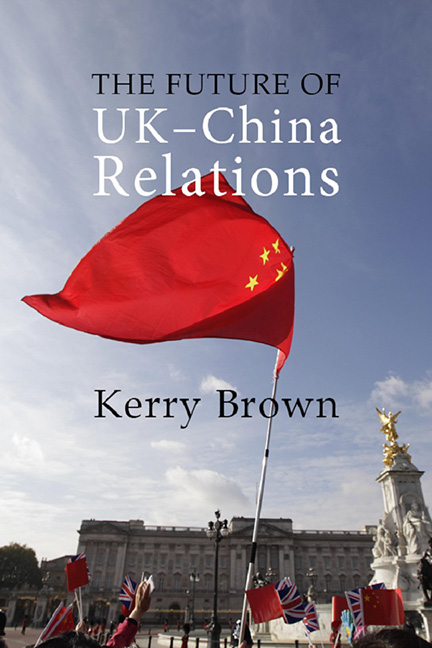Book contents
- Frontmatter
- Dedication
- Contents
- Dedication
- Preface
- Foreword by Tim Clissold
- Introduction
- 1 Tales from the golden age
- 2 What does China want? The case of the UK
- 3 Walk on by: what does Britain really want from China?
- 4 Who cares? The China circle in Britain
- 5 The good, the bad, and the Brexit: the UK and China outside the EU
- 6 The UK and China: scenarios for the coming decade
- Appendix: the UK’China balance sheet
- Further reading
- Notes
- Index
2 - What does China want? The case of the UK
Published online by Cambridge University Press: 24 August 2023
- Frontmatter
- Dedication
- Contents
- Dedication
- Preface
- Foreword by Tim Clissold
- Introduction
- 1 Tales from the golden age
- 2 What does China want? The case of the UK
- 3 Walk on by: what does Britain really want from China?
- 4 Who cares? The China circle in Britain
- 5 The good, the bad, and the Brexit: the UK and China outside the EU
- 6 The UK and China: scenarios for the coming decade
- Appendix: the UK’China balance sheet
- Further reading
- Notes
- Index
Summary
What does China want? It is a commonly asked question by business people, politicians and commentators not just in the UK, but throughout the world today as they engage with this newly emerging power. Throughout Asia, North America, Central Asia, the Middle East, and into Eastern, Central, and finally Western Europe and the rest of the world, figuring out China’s plans and desires towards itself and the outside world are of central concern. Interpreting these desires correctly, working out how to leverage them or gain benefits from them, and whether to see them as benign or more assertive and threatening – has become the work of diplomats, business people, analysts and politicians the world over.
China’s statements about its own plans and desires are not unproblematic. Under Hu Jintao, the main Chinese leader from 2002 to 2012, an increasingly heavy silence reigned. The most the world got were statements of “peaceful rise” and “harmonious co-operation”. Such soporific rhetoric was hard to work with, particularly as China’s actions – aggression in the South and East China Sea, and shrill declarations of hurt feelings when criticized over matters like Xinjiang or Tibet, which it considered domestic ones – often seemed completely at odds with its muted language when addressing international relations. Demands in the United States and elsewhere that China make a clearer statement of its intentions became unavoidable when confronted with the burgeoning size of the country’s economy. From 2002 to 2012, despite the negative impact of the world financial crisis in 2008, China quadrupled its GDP from $1.4 trillion to $8.5 trillion.1 Other economies like that of the United States managed less than double that growth. China could no longer hide its size and significance on the world stage, even if it wanted to.
With Xi Jinping, from 2012, there was a major corrective. He asked his fellow politburo members to tell the China story. He also asked his diplomats to be proactive. The Belt and Road Initiative was amongst the most important of these new statements of intent: the grand geopolitical idea first articulated by Xi in 2013 as “The New Silk Road” and attempting to map out a Chinese vision of how it engages with the world around it on balanced, mutually beneficial ways.
- Type
- Chapter
- Information
- The Future of UK-China RelationsThe Search for a New Model, pp. 29 - 48Publisher: Agenda PublishingPrint publication year: 2019



